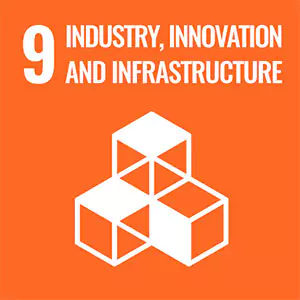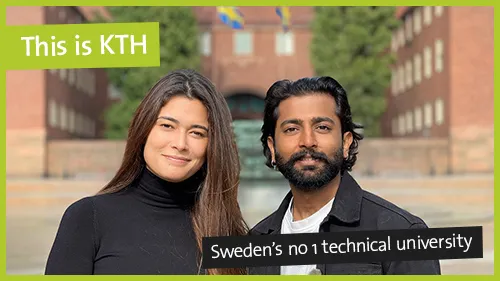MSc Engineering Physics
The master's programme in Engineering Physics bridges the gap between theoretical physics and practical engineering, seeking to develop future technology. Solving complex problems is an integral part of the education, demanding in-depth knowledge of physics, as well as analytical and computational tools. Through specialisations, students become domain experts in one field of physics and go on to advanced industrial R&D positions or PhD studies.

Engineering Physics at KTH
The master's programme in Engineering Physics educates students aiming to work at the forefront of the development of future technology. You will learn about state-of-the-art experimental and computational methods and gain the requisite skills to create new innovations. Graduates from the programme usually find their first jobs as development engineers in innovation- and development-oriented companies or as PhD students in academia.
The programme offers five tracks: Theoretical Physics, Subatomic and Astrophysics, Biomedical Physics, Light and Matter Physics, and Quantum Technology. You choose a track directly when you start the master’s programme in Engineering Physics. Each track contains a few mandatory courses and several conditionally elective courses. You must choose at least 40 ECTS credits of courses within your track to obtain deep knowledge and adequate skills within one subfield of physics. Elective courses are an essential part of the programme and give you a great deal of freedom to tailor your own competence profile related to physics.
Biomedical Physics
The Biomedical Physics track focuses on using physics for applications and research in the life sciences, including biology, chemistry and medicine.
Light and Matter Physics
The Light and Matter Physics track focuses on applications connected to light and matter and allows you to specialize in condensed matter physics, optics or a field in between.
Quantum Technology
The Quantum Technology track focuses on engineering systems to manipulate and measure quantum states with applications in information processing, secure communication and sensing.
Subatomic and Astrophysics
The Subatomic and Astrophysics track covers numerous fundamental science topics at the forefront of contemporary physics.
Subatomic and Astrophysics track
Theoretical Physics
The Theoretical Physics track provides a broad education in fundamental theoretical physics and computational physics.
Degree project
During the final semester you will carry out a master’s degree project that you can conduct in an academic or industrial environment in Sweden or abroad.
This is a two-year programme (120 ECTS credits) in English. Graduates are awarded a Master of Science degree. The programme is given mainly at the KTH Campus in Stockholm by the School of Engineering Sciences (at KTH).
Courses in the programme
Future and career
Graduates of this programme can look forward to ample job opportunities, both in industry and academic research. Please see the track information for details about opportunities for graduates from the different tracks.
Sustainable development
Graduates from KTH have the knowledge and tools for moving society in a more sustainable direction, as sustainable development is an integral part of all programmes. The three key sustainable development goals addressed by the master's programme in Engineering Physics are:



The focus of the programme is to equip you with the ability to develop novel technologies based on the principles of physics and for the benefit of future society. You will gain a deep understanding of your specialisation in physics and a high ability to take responsibility for your own life-long learning. The general problem-solving techniques learnt within the programme can be used for solving problems within several of the sustainable development goals. Obvious examples of this are the biomedical innovation research within the Biomedical Physics track and the research on renewable energy, water cleaning and smart materials in the Light and Matter Physics track.
Faculty and research
The master's programme in Engineering Physics is supported by two departments at KTH, the Department of Physics and the Department of Applied Physics. We are mainly located at the Albanova University Centre, a hub for physics research within the Stockholm area. Our research is divided into several fields covering most parts of modern physics.
- The Department of Applied Physics researches biomedical and X-ray physics, biophysics, laser physics, materials- and nanophysics, nanostructure physics, photonics, quantum and biophotonics.
- The Department of Physics researches condensed matter theory, nuclear physics, particle and astroparticle physics, and physics of medical imaging.
- Albanova University Centre







